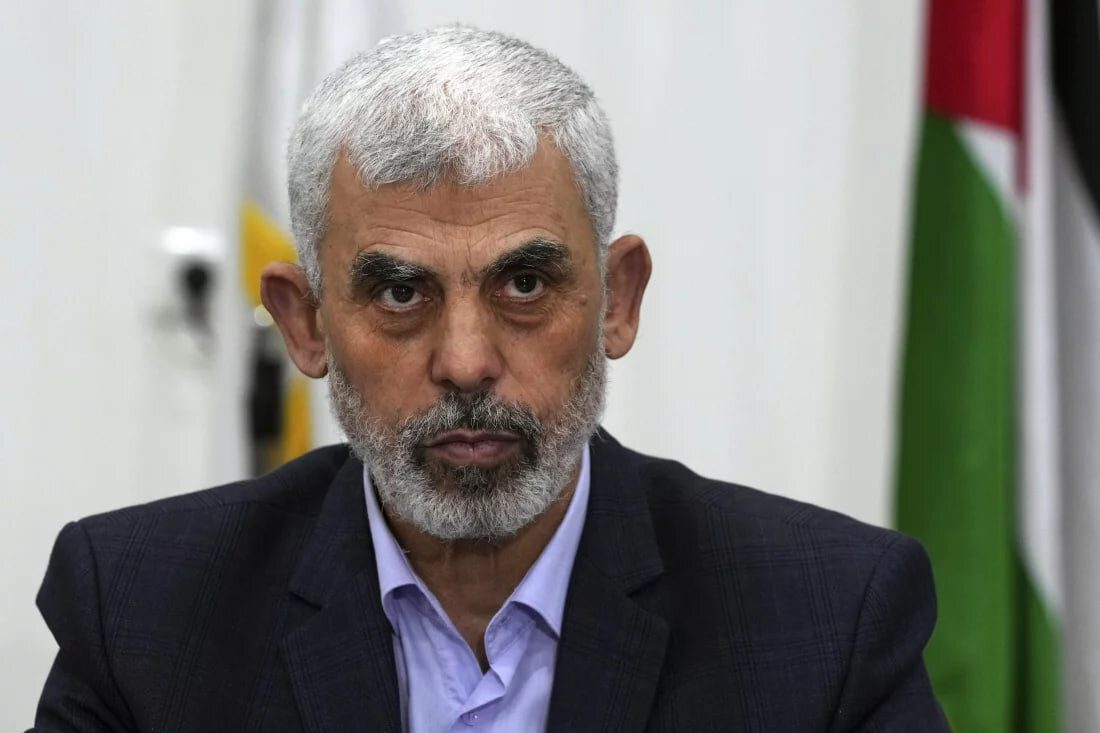Yahya Sinwar: A leader who redefined resistance

MADRID- Yahya Sinwar lost his life in a confrontation with Zionist occupation forces in Gaza. His assassination indicates that he fell in battle rather than hiding in Hamas tunnels, which casts doubt on Israel's alleged superiority in terms of intelligence.
Yahya Ibrahim Hassan al-Sinwar, 62, known as Abu Ibrahim, was born in Gaza in 1962, during a period marked by repression, curfews, arrests, interrogations, and Israeli military occupation. From a young age, Sinwar felt a deep connection to the Islamist youth of Gaza.
In 1973, during the Yom Kippur War, he supported the new Arab attempt to confront Israel militarily. However, as he recounted in various interviews, he and those around him watched as their hopes for victory crumbled, particularly when Egyptian leader Anwar Sadat went to the Israeli parliament seeking peace, which Sinwar viewed as a betrayal of the Palestinian cause.
In December 1987, the First Intifada erupted in Gaza, a popular uprising against Israeli occupation that quickly spread to the West Bank. The catalyst was the death of several Palestinians in an incident involving an Israeli military vehicle. Convinced it was a deliberate act, young Palestinians took to the streets to throw stones and burn tires. The following day, Sheikh Ahmed Yassin, an influential leader and member of the Muslim Brotherhood, gathered his associates in the al-Shati refugee camp in Gaza. After heated discussions, they founded Hamas as an alternative to the PLO, with the aim of eradicating Israel. They drafted their founding charter, accusing the Israeli state of "Jewish Nazism."
Sinwar was the founder of Hamas's security apparatus, known as Mujd, and became one of the movement's most senior leaders. Israel considered him the main figure responsible for the October 7, 2023 attack and marked him as a priority target for elimination.
From its inception, Hamas committed to jihad, a struggle that is both spiritual and military. Sinwar's primary responsibility in Hamas was to maintain loyalty and punish betrayal. In his autobiography, published in 2004, Sinwar describes Yassin as his spiritual and political mentor.
In February 1999, while serving four life sentences in a prison in the Negev desert at the age of 36, Sinwar said he had planned an operation to take an Israeli soldier captive a year earlier. Although the plan did not materialize, his goal was to free 400 Palestinian prisoners. This operation was orchestrated alongside his cellmate, Mohammad Sharata, a Hamas commander serving a long sentence for the deaths of two Israeli soldiers. This episode highlights Sinwar's ability to influence and direct operations from prison, which he viewed as a "university" for learning the language, psychology, and history of the enemy.
Like many other Palestinian prisoners, Yahya Sinwar took advantage of his time in Israeli prison to master Hebrew. He read Israeli newspapers, listened to Hebrew radio, and studied books by Zionist theorists and Israeli politicians. Despite being incarcerated, Sinwar constantly prepared for the day of his release, aiming to strengthen the resistance. While in prison, he continued his struggle and established himself as a leader.
Mukhemer Abu Saada, a Palestinian political scientist, notes that for Palestinian prisoners, jail is not just a place of punishment but also an opportunity to better understand Israeli society and strengthen internal cohesion. In this regard, Sinwar himself acknowledged years later in an interview with a Palestinian media outlet that "prison shapes you, especially if you are Palestinian, because it is there that you meet other Palestinians; you have time to talk and reflect on the price you are willing to pay."
In 2006, Hamas fighters conducted an operation from a tunnel in Gaza, infiltrating an Israeli military base in Kerem Shalom. During the incursion, they killed two soldiers and captured Gilad Shalit, a 19-year-old Israeli corporal. Despite the internal debate in Israel over whether it was worth exchanging Shalit for Palestinian prisoners, he was ultimately released in 2011 in exchange for more than a thousand Palestinians, including Sinwar and his fellow prisoner, Mohammad Sharata.
After his release, Sinwar quickly assumed leadership of Hamas in Gaza. On October 7, 2023, along with Mohammed Deif, he led Operation "Al-Aqsa Flood," regarded as the most devastating attack against Israel in 50 years. The resulting war has so far left over 42,000 Palestinians dead and shaken global politics. Since then, Sinwar has become the primary target of the Israeli army.
In a television interview, Sinwar acknowledged Israel's military capabilities but emphasized that it could not rely on that advantage forever. According to him, in 20 years, Israel would weaken, and that would be the ideal time to launch a definitive attack. For Sinwar and other Hamas leaders, advancing relations with Israel had become impossible, especially under Netanyahu’s leadership, which they claimed intensified efforts to humiliate Palestinian interests. In this context, Sinwar's rhetoric radicalized, openly advocating for the "eradication of Israel through jihad and armed struggle."
The October 7, 2023, attack, carefully planned by Sinwar, coincided with Shabbat and the Simchat Torah holiday, marking the final days of major autumn celebrations in Israel. In the early days, the impact was so devastating that fears arose about a possible collapse of Israel. No event in Israel's 75-year history had undermined its sense of security and military superiority as profoundly as this attack.
Hamas will continue to represent the Palestinian anti-colonial response. In fact, Sinwar’s death may not provide greater security to Israel; rather, it could intensify fears for its survival. For every leader like Sinwar, Haniyeh, or Nasrallah that Israel eliminates, a new generation of anti-colonial leaders is likely to emerge in the territories affected by occupation.
